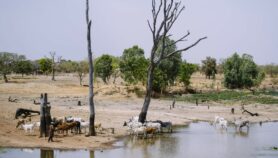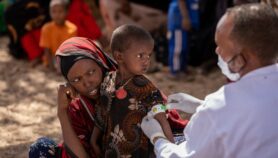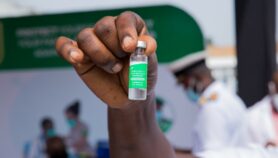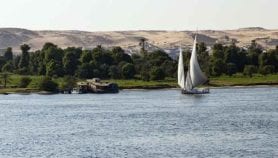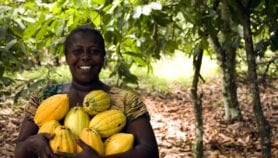By: Julie Clayton
Send to a friend
The details you provide on this page will not be used to send unsolicited email, and will not be sold to a 3rd party. See privacy policy.
Nadia Essayed has a challenging task: to develop and harmonise Africa’s policy on science and technology. Originally an engineering professor from Libya, she was elected in 2004 as the African Union’s commissioner for human resources, science and technology, based in Addis Ababa, Ethiopia.
Her first major goal is to convince African heads of state of the importance of science and technology at the African Union (AU) summit on science, technology and innovation in Addis Ababa in January 2007.
In preparation, Essayed’s department is working closely with NEPAD (New Partnership for Africa’s Development) to produce a consolidated plan of action for science and technology. They are also organising meetings between scientists and policymakers, including the forthcoming Congress of African Scientists and Policymakers (CASP) in Alexandria, Egypt, from 27-29 October to create concrete proposals for consideration at the summit.
Julie Clayton: How important is the AU summit in January?
Nadia Essayed: We were so thrilled to have an opportunity to address the heads of state about science and technology. This is a milestone achievement for Africa to give science and technology more awareness and importance over other issues, because usually the role of science and technology is underestimated.
JC: Why is that?
NE: Because Africa is still suffering from more serious problems such as sanitation, water and food security. If we use science in the right way I am sure we will minimise many of these problems and overcome them. We wish to see how we can use science and technology to help Africa in its social and economic development, and make it a more knowledge-based economy.
JC: Do national governments support that view?
NE: I think they are more aware of the potential of science and technology, and that is why they are serious. Before, heads of state were just politicians and didn’t want to know. Now in Senegal and in many other countries, they give high status to science, technology and education.
We don’t just mean importing science and technology from outside. We believe in technology transfer, but we also encourage the development of traditional knowledge and traditional technology. We have a richness in our traditional knowledge and we want to use it. It’s cheaper for us, and it might be better for the environment.
JC: Are there any specific innovations or strategies that you would like to see carried out that you think would make a difference?
NE: I would like to see [heads of state] recognise the importance of science and technology and adopt a policy of giving it the right portion of their national budget, and reconsider education policy.
JC: Do you have an estimate of how much African governments spend on science and technology?
NE: We agreed previously on 1 per cent of the gross domestic product, but this has not been applied yet, even in the richest countries, because the commitment is not there. I think the concept should be accepted first, and then the money allocated. I don’t blame the politicians because unless they see it can change the daily lives of the residents of their country they won’t believe in science and technology that much. Once they feel it in their daily lives they will find the money.
JC: Are you aiming to push the budget up from 1 per cent?
NE: Yes. But even if we cannot push it up, at least we can hope to have a serious commitment [to developing science and technology]. But it is difficult to push for a specific amount because in Africa we have from very rich to very poor countries, and you can’t have general rules.
JC: Are you planning for more collaborations between countries?
NE: We are working hard for the promotion of regional organisations to be pillars for implementing these policies. They will help members of that region cooperate and help each other. Most projects chosen are those that benefit more than one country, to achieve regional integration. Because we know that within those regions we have [economic] differences, we can achieve a lot through cooperation and coordination.
JC: How are you preparing for the summit?
NE: The department is working hard to produce a plan of action for science and technology for the continent, covering both policy and research and development programmes, in consultation with scientists in the AU. We are also encouraging individual countries to have their own policies according to their situation, capacities and means.
We are hoping to achieve the AU vision and goals, as well as the Millennium Development Goals. We hope to close the [poverty] gap, or at least decrease it, to enable Africans to play a role in the global economy.
Our pre-summit activities have begun with increasing awareness, including meetings with nongovernmental organisations to see how to popularise science and technology among Africans, and promote its development and education.
Then we hope that the Congress of the African Scientists and Policymakers will make a lot of difference to the way we are handling science and technology. We hope that by sitting together and discussing issues from all sides we can come out with recommendations to be presented to the heads of state for endorsement at the summit.



